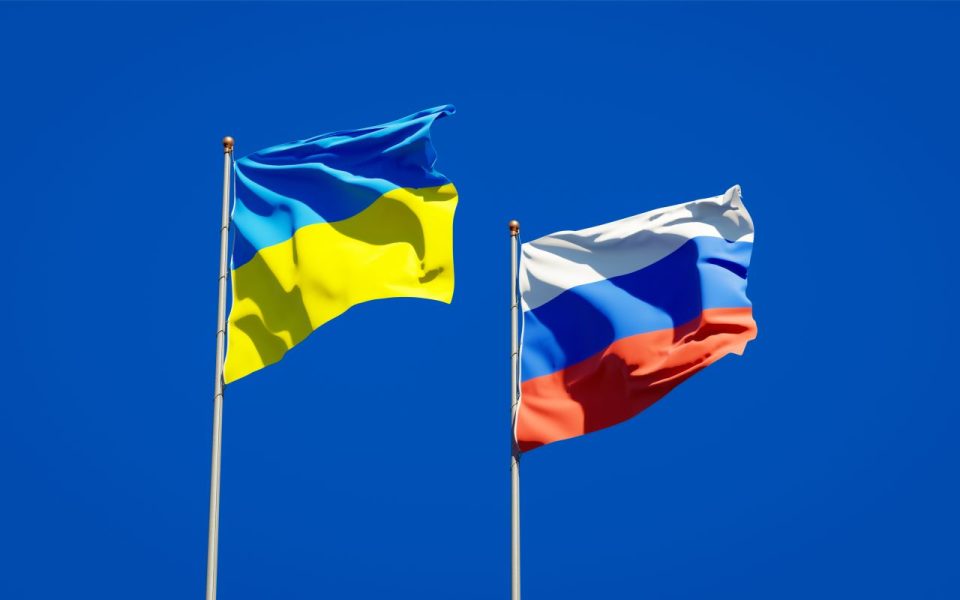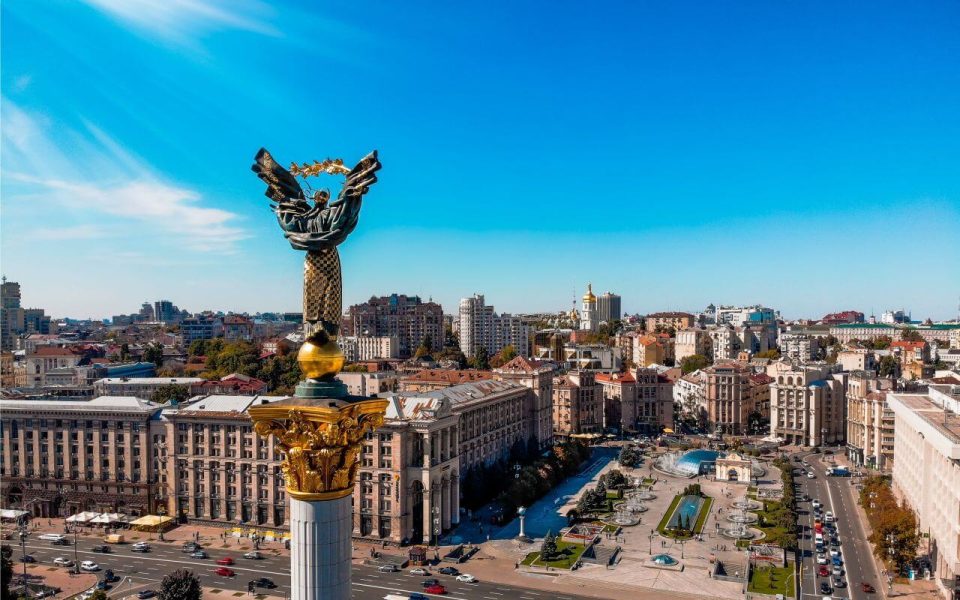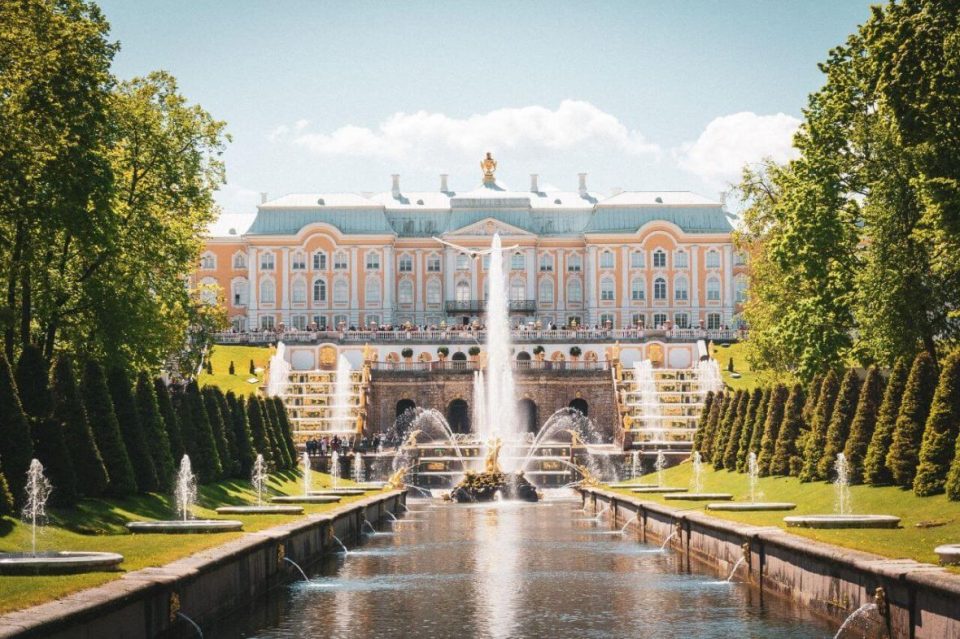Russian Greetings: Common Phrases and Basic Words
Привет! We’re going on a journey through Russian greetings and beyond.
Russian and Ukrainian may be ‘siblings’ but they are more different than you think.

Contrary to what some people believe, Ukrainian and Russian are not the same language. Despite sharing a common ancestor and the Cyrillic script, Ukrainian and Russian are two distinct languages. They are somehow similar, yes, but not one and the same. To help you understand the relationship between the two, we are going to look at their shared history and both their differences and similarities.
In short, yes. The Ukrainian language was formerly called Little Russian, but the term is now considered pejorative. Let’s see how all the events leading to this name unfolded.
First, you should know that Ukrainian, the same as Russian, is an East Slavic language of the Indo-European language family. Its origins can be traced back to the Old East Slavic language used in Kievan Rus between the 10th and the 13th century. After the fall of the Kievan Rus, the language developed into what was called the Ruthenian language. Along with it, in the territory of modern Ukraine, the Kyiv version of Church Slavonic was also used in liturgical services.
From here on, there are several theories regarding the development of the Ukrainian language and its divergence from Russian, but what’s most important is that their common ancestor, Old East Slavic, spanned a territory hundreds of kilometers wide. Considering how other languages came to be and how much migration influences the process, it’s obvious that the separation happened gradually.
Here’s how other languages influenced (what would later be known as) Ukrainian in the following centuries:
Due to heavy borrowings from so many languages, by the mid-17th century, Ukrainian and Russian became so different that the negotiations for the Treaty of Pereyaslav had to be done using translators.

As a result of Ukraine’s centuries-long political subordination, Ukrainian had almost no literary expression until de 18th century when the modern literary Ukrainian language was born.
Russian, known as Русский язык (romanized: Russkiy yazyk) to Russians, is the official language of Russia, Belarus, Kazakhstan, and Kyrgyzstan and it is also used as a second language in other former Soviet countries. Additionally, Russian is one of the six official United Nations languages and the 8th most spoken language in the world with a total of 260 million speakers.
Naturally, the origin story of the Russian language continues from where we left it off with Ukrainian – in the 13th century when their divergence began. As the territory of today’s Ukraine fell under Lithuanian rule, the eastern land came under the rule of the Grand Duchy of Moscow.
Moscow and Novgorod, and later the growing Muscovy, were all home to Church Slavonic (descendant of Old Church Slavonic), which was the literary language until the Petrine era when its use was limited to biblical and liturgical texts. Then, the westernizing policies of Tsar Peter I the Great brought entire blocks of specialized vocabulary from the languages of Western Europe. By 1800, many spoke French and even German on a daily basis. This is why 19-century some Russian novels contain entire paragraphs in French with no translation given – because it was believed that educated people would not need one.
Nevertheless, it was the 19th-century poet Aleksandr Pushkin who determined the further development of the Russian language we know today. His writings, in which he combined the colloquial and Church Slavonic styles, were decisive in establishing the best style for literary use.
Later, the Soviet period brought Russian worldwide prestige which declined after the 1991 collapse. Despite each USSR constituent republic having its own official language, Russian had a unified role and superior status. This is why there are so many people speaking Russian outside Russia.
The misconception that Russian and Ukrainian are the same sometimes stems from the fact that Russian is widely spoken in Ukraine. The numbers can differ slightly according to various sources, but it’s generally agreed that 60% of Ukrainians consider Ukrainian their native language, while 15% consider Russian to be their native language. Moreover, 22% consider both to be their native languages.
It’s also worth noting that most Ukrainian speakers can also speak Russian, even if it’s as a second language. To an untrained ear, that may sound like Ukrainian when it is in fact, Russian. On top of that, some people use a mixture of Ukrainian and Russian called Surzhyk.
So how similar are Ukrainian and Russian? They share about 62% lexical similarity. What many people don’t know is that Ukrainian has a higher lexical similarity with Polish, Slovak and Belarusian, than it does with Russian – especially with Belarusian.

Since most Ukrainian speakers also speak Russian or have extensive exposure to it, ‘asymmetric intelligibility’ is the best term to describe the relationship between the two languages. In other words, Ukrainian speakers can often understand Russian, while Russian speaker doesn’t understand Ukrainian, especially Russian speakers from outside Ukraine.
However, all three languages – Ukrainian, Russian and Belarusian – are in part mutually intelligible, and already knowing one can help a lot if you want to learn one of the others.
Now that we’ve explained the history behind Ukrainian and Russian, it’s time to look at some more practical examples. A 62% lexical similarity may sound like a lot, but these two languages are not as similar as many might think. Here are some of the most important differences between Russian and Ukrainian.
Both Ukrainian and Russian use the 33-letter Cyrillic alphabet, but there are four letters in Ukrainian missing from Russian (ґ, є, і, ї), and four letters in Russian missing from Ukrainian (ё, ъ, ы, э).
Learning Russian thinking you will easily understand Ukrainian it’s not a great strategy. While they share a lot of words, some of them are ‘false friends’ and can mean completely different things:
On the other hand, it’s true – there are some similar words that mean the same thing, but also different words with different meanings. Let’s look at some examples:
| Ukrainian | Russian | English |
|---|---|---|
| мати maty | мать mat | mother |
| чай chay | чай chay | tea |
| хліб khlib | хлеб khleb | bread |
| cічень sichen | январь yanvar | January |
| ранок ranok | утро utro | morning |
| пляшка plyashka | бутылка butylka | bottle |
While to a non-trained ear Russian and Ukrainian might sound the same, they actually have several differences when it comes to pronunciation. For example, Ukrainian has a specific sound for “Г г” (similar to [h] in ‘aha!’) which Russian doesn’t have. For this letter, Russian uses the [g] sound which is similar to the ‘g’ in ‘go’ or ‘guard’. As a consequence, it’s very easy to differentiate a Ukrainian speaker from a Russian speaker as Ukrainians sometimes overlook the usage of [g] instead of [h].
Here are some other relevant pronunciation differences between Ukrainian and Russian:
When it comes to grammar, Russian and Ukrainian have similar principles and categories:
However, there’s a big difference when it comes to endings because the exact word forms are often different or at least not entirely the same.
Furthermore, another thing to notice when talking about differences is that while Ukrainian has a vocative case, Russian does not (Russian has six cases and Ukrainian has seven). It used to have a vocative case, but not anymore – except for a few specific words. For example, a rare situation where it is still used is when addressing God.
Last but not least, Ukrainian has three types of future tense, while Russian has only two.
These are only a few of the differences and similarities between Ukrainian and Russian. As you can see, they are very closely related languages that sometimes share a lot, sometimes not. The different vocabulary, pronunciation, and word forms that have arisen over time make the two languages only partially mutually intelligible to people who don’t have much exposure to the other language.
Do you want to learn languages fast? Get Mondly, the award-winning language app that will help you speak Ukrainian, Russian and more from day 1.
It can be tricky to learn a new language if you don’t actively live in a country where it is spoken. But with Mondly you’ll have access to a fast and highly efficient learning method that allows you to learn languages naturally with:
Start using Mondly for free on your computer or download the app and learn Ukrainian, Russian and more anytime, anywhere.

Привет! We’re going on a journey through Russian greetings and beyond.

From weather, typical costs to Hebrew words and Hebrew phrases every traveler needs to know, here is the ultimate travel guide for your next trip

Let languages get stuck in your head like songs. 🎵
Do you mean little russian because of big Russia empire?
You mean what I mean
No. Little Russian was the Russian name of the Ukranian language and people during the Tzarist Russia.
I always thought that Russian and Ukrainian were the same language but both countries use it in different slang. Like the difference between Syrian Arabic and Egyptian Arabic.
Your article was very informative.
Thank you very much.
Simple reply- it’s has nothing in common except alphabet. If ukrainian citizen will speak to russian citizen from Russia in Ukrainian- russian person will not understand a thing, though he will hear similar words. Ppl often think russian speaking but Ukrainian citizen understand nd speak Ukrainian language so all Russians can do the same. It’s wrong. Same as Mexican or polish who lives in USA can understand and speak English. That’s normal. ANY Ukrainian citizen can understand Ukrainian regardless of his mother tongue. Most Ukrainian citizens can speak russian due to reason they had to learn ot in USSRas a must.
I wonder if the author of this article ever opened textbooks on historical grammar or not?
This content appears to be written using ChatGPT…
Hi Nataliia!
I’m sorry you think that way. This article was actually written in March 2022, whereas ChatGPT wasn’t released until November 2022. Therefore, it couldn’t have been generated using AI.
Thanks!
Very helpful article.
Thank you so much for the very informative and useful article. I am studying Russian, and wondering just how to add some Ukrainian. Now that I have a better idea of some of the differences, I have an idea of where to start.
You’re welcome, Stephen!